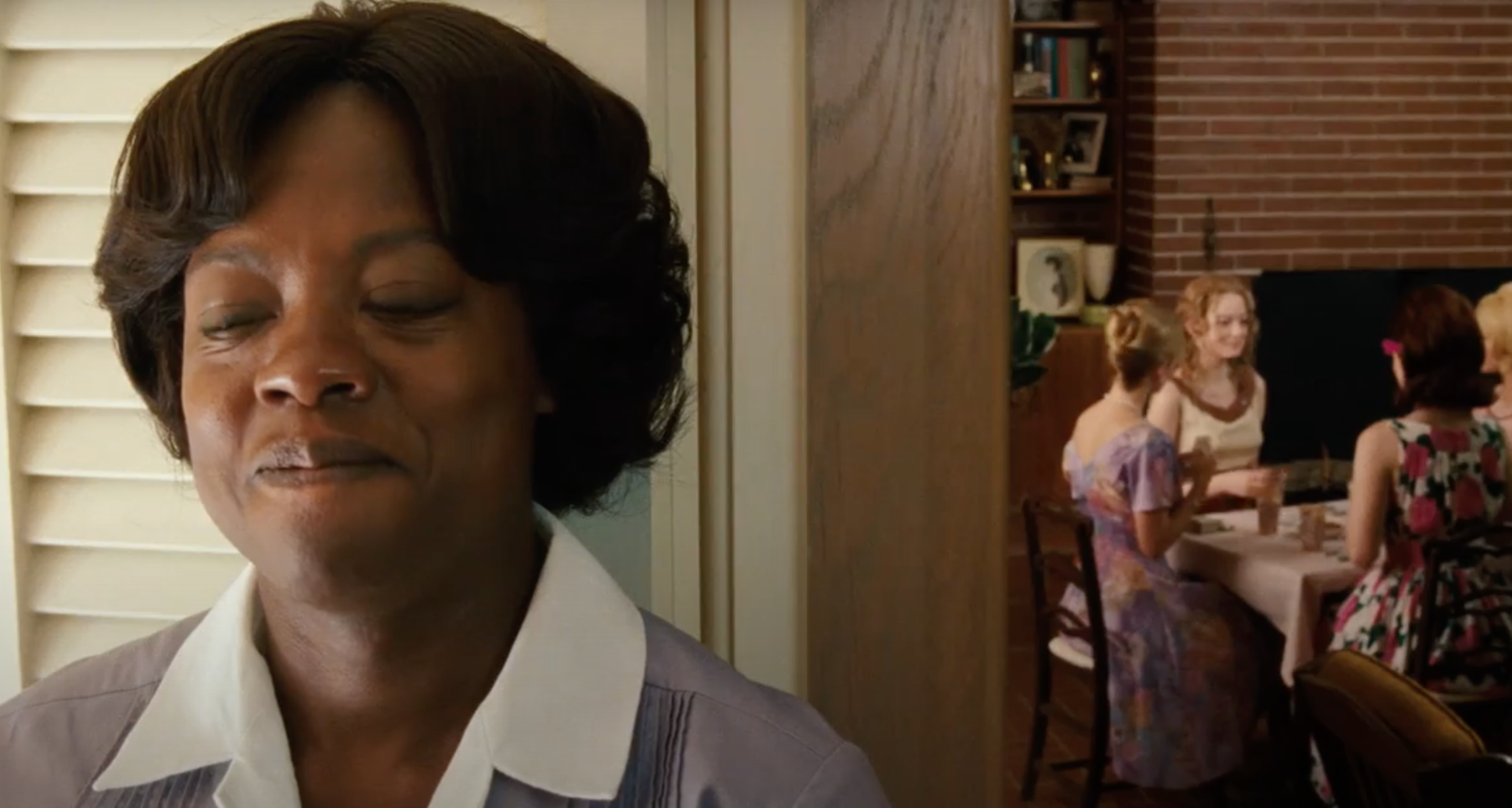The Help is, at surface level, a heartwarming tale of racial reconciliation. Viewers rejoice in how the 2011 film fuses more serious conversations about segregation and civil rights with hints of sassy humor and Southern romance.
In our current socio-political climate— as thousands protest against police brutality and, in a broader context, systemic racism — the movie is gaining popularity. Shortly after its June 2020 release on Netflix, Netflix reported that The Help became one of the most popular movies on the platform.
The movie follows white journalist Eugenia “Skeeter” Phelan (Emma Stone) as she interviews Black maids in 1960s Jackson, Mississippi in an attempt to write a book about their lived experiences with racism. Along the way, she befriends two Black maids— Aibileen Clark (Viola Davis) and Minny Jackson (Octavia Spencer) — and severs her friendship with out-and-proud racist Hilly Holbrook (Bryce Dallas Howard). It’s undeniably a feel-good movie: in one notable scene, Minny avenges the bigoted Hilly in a clever twist:
But, despite its comforting moments, the movie falls short of actually educating its viewers on the complicated parameters of racism. And the actors in the movie and Twitter users alike agree.
"The Help" trending on netflix is all we need to know about how some ppl are educating themselves.
LOLOLOL
— Ashanté M. Reese (@AMReese07) June 4, 2020
LRT – I'm so sorry but the last thing folx need to be watching are bootleg "racial reconciliation" movies like "The Help" – if you need a list of Black films, Black film critics are on here happy to suggest some really good ones. Hi, happy to help. pic.twitter.com/0diLv2kD75
— FilmFatale_NYC 🇭🇹 🇩🇴 🇺🇸 (@FilmFatale_NYC) June 4, 2020
Netflix, The Help is a white story with Black people in it. It is not a Black story
— 🌙Piper Violet ✨ (@UhOhBurns) June 13, 2020
In one interview with New York Times, Viola Davis voiced her regrets on her role in The Help: “Not in terms of the experience and the people involved because they were all great… I just felt that… it wasn’t the voices of the maids that were heard.”
Bryce Dallas Howard, who played Hilly, agreed, saying on Instagram that “The Help is a fictional story told through the perspective of a white character and was created by predominantly white storytellers. We can all go further.”
While I used to be an avid fan of the book and its movie adaptation, I find now that it has flaws in how it oversimplifies the intricate and structural nature of racism and how it presents Skeeter as a white savior to the Black Mississippi maids.
Throughout the movie, the storyline revolves around Skeeter and her aspirations. In the beginning, she finds herself lost as she desires a job in the publishing industry; in the end, she finds success in the publishing of her collection of maid stories.
The focus on Skeeter’s storyline essentially objectifies the Black characters, establishing them as props on Skeeter’s path to success. It is implied that her bravery— and not the bravery of Aibileen or Minny— brought justice to Jackson, Mississippi. Stories of white saviors, which is a common trope in movies like Green Book, Hidden Figures, and Freedom Writers, whitewash the colorful landscape of racial activism. People of color have historically been the ones agitating for change, so why do we rarely hear their stories?
Glossing over the experiences of activists of color and replacing it with a story about a white savior journalist is dangerous. It negates the tremendous work that they have done in the fight for civil rights. From the Selma to Montgomery March to the Black Lives Matter movement, it is the demands of BIPOC activists that have reshaped our definitions of equality.
I am reminded of a Tiktok in which a white influencer, @whitebreadddd, attempts to portray himself at the pinnacle of the Black Lives Matter movement, a movement that has largely been led by grassroots Black activists. His self-portrayal as a Black Lives Matter activist invalidates those who have been actively protesting against police brutality without the incentive of social media clout.
Omg wouldn’t it be terrible if this video of some white boy poser making black lives matter his bad boy aesthetic got to black twitter… His Instagram is @/whitttttebread his tiktok is @/whitebreadddd check this thread for more #BlackLivesMatter #blm #BlackOutTuesday pic.twitter.com/jMHaS3JQdx
— Moved (@gyarutoga) June 3, 2020
This tiktok kid whitebreadddd went to a blm protest and purposely broke things there. He pretends he’s advocating for blm and was confronted in person for breaking things. He said he “didn’t care” then he got arrested, and came back when he was released for clout pic.twitter.com/aCzxwoEFEz
— shae (@champagnesalty) June 3, 2020
Though it has its comedic moments, The Help provides an insensitive and oversimplified view of racial relations in the 1960s. It’s imperative that movies similar to The Help make an active commitment towards diversity, in both the movie’s storyline and behind the scenes. Black stories should be told by Black authors, not white ones: Kathryn Stockett, a white author, wrote the book and Tate Taylor, also white, directed the movie.
In the meantime, I am directing my attention towards much more authentic works centered around Black experiences: 13th is an insightful look into mass incarceration and systemic racism in the criminal justice system, and Pose tells the often-forgotten stories of Black trans women and their role in igniting the NYC ballroom scene. We often forget that the media we consume has the potential to shape our world views, for the better or the worse— let’s make sure it’s not the latter.
Featured image via YouTube












